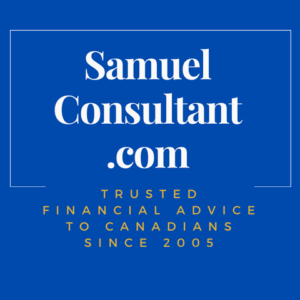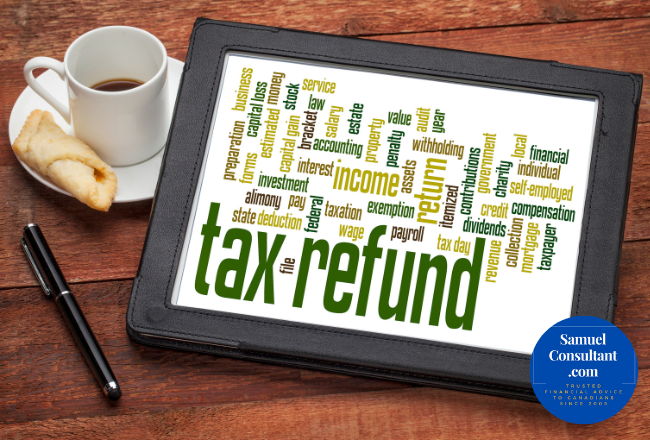As most of you should have filed our taxes by now (if you haven’t yet, remember the deadline to file tax for individual is April 30, 2024).
If you have already done so, it’s a great time to discuss how to make the most of any potential tax refund. I recently came across an insightful podcast titled “Make the Most of Your Tax Refund!“
This podcast featured Sébastien McMahon, Chief Strategist and Senior Economist at IA and his colleague, Pablo Carrera, who shared their knowledge on effectively using tax refunds to bolster one’s financial well-being.
Here are some key aways along with my personal insights.
Utilizing Your Tax Refund for Savings and Investing:
Investing your tax refund wisely can be a boon for your financial health. Here’s how you can use different accounts to maximize this opportunity:
- First-Time Home Buyer Savings Account (FHSA): If you’re planning to purchase your first home, the FHSA can be a great option. This account offers tax deductions on contributions and tax-free growth, making it a powerful tool for accumulating your down payment.
- Registered Education Savings Plan (RESP): For those saving for a child’s post-secondary education, the RESP not only grows tax-free until withdrawal but also attracts government grants which can add substantial value to the education fund.
- Registered Retirement Savings Plan (RRSP): Ideal if you are in the accumulation phase of your retirement planning. Contributions to an RRSP can reduce your taxable income now, while your investments grow tax-deferred until withdrawal.
- Registered Disability Savings Plan (RDSP): For individuals with disabilities or families planning for a member with disabilities, RDSPs offer long-term savings benefits and include substantial government grants and bonds that enhance the growth of your contributions.
- Tax-Free Savings Account (TFSA): Suitable for nearly all Canadians, whether in the accumulation phase or as retirees looking to shelter investment growth from taxes. The flexibility of TFSAs allows you to withdraw funds tax-free at any time, for any purpose.
Repaying Debt
As discussed in the podcast, another prudent use of your tax refund is to pay down high-interest debt. This includes credit card balances, personal loans, or any other debt that charges higher rates. Paying these off can reduce the amount you pay in interest and free up additional resources for other financial goals.
Sébastien McMahon, Chief Strategist and Senior Economist at IA
“So it’s about not creating anxiety by thinking about the best practices for savings. It’s about having a plan that makes sense, that’s realistic, and that you revise as you move forward in life, adjusting the plan as you go.”
If you are interested in listening to the podcast, here’s the link to it.
When it comes to investments, it’s important to build a portfolio that is suitable according to your objective, risk profile and time horizon. If you are looking for investment advice from a trusted professional, you may CLICK HERE to gain a better understanding of our investment planning process.
Disclaimer:
The comments contained herein are a general discussion of certain issues intended as general information only and should not be relied upon as investment, financial, legal, accounting or tax advice. Please obtain independent professional advice, in the context of your particular circumstances. This newsletter was written, designed and produced by Samuel Li for the benefit of Samuel who is Advisors at : SamuelConsultant.com is a registered trade name with Investia Financial Services Inc., and does not necessarily reflect the opinion of Investia Financial Services Inc. The information contained in this article comes from sources we believe reliable, but we cannot guarantee its accuracy or reliability. The opinions expressed are based on an analysis and interpretation dating from the date of publication and are subject to change without notice. Furthermore, they do not constitute an offer or solicitation to buy or sell any securities.
Mutual Funds, approved exempt market products and/or exchange traded funds are offered through Investia Financial Services Inc.
Commissions, trailing commissions, management fees and expenses all may be associated with mutual fund investments. Please read the simplified prospectus before investing. Mutual funds are not guaranteed and are not covered by the Canada Deposit Insurance Corporation or by any other government deposit insurer. There can be no assurances that the fund will be able to maintain its net asset value per security at a constant amount or that the full amount of your investment in the fund will be returned to you. Fund values change frequently and past performance may not be repeated. Investia is not liable and/or responsible for any non mutual fund related business and/or services.

